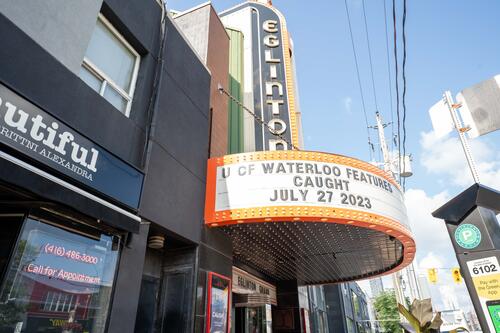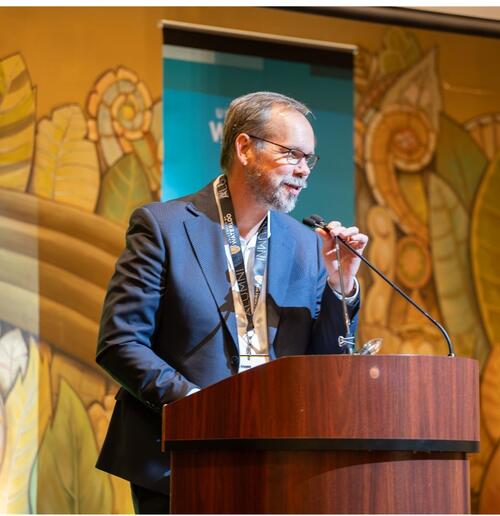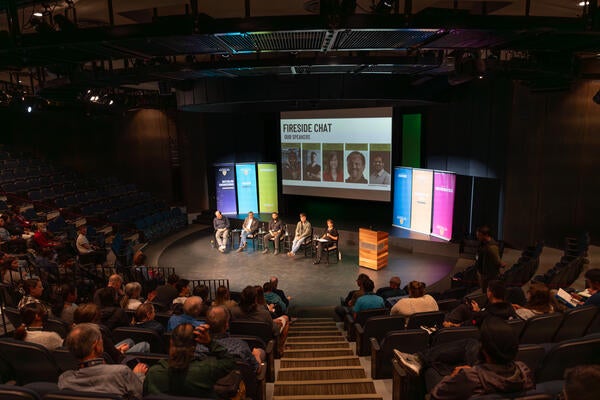
Waterloo hosts a special screening of CAUGHT
A new documentary on unsustainable fishing practices and ocean life protection

A new documentary on unsustainable fishing practices and ocean life protection
By Faculty of Environment“300 years ago, before the arrival of industrial fishing, the ocean was full of life … and now, it’s like a shadow of itself,” says the narrator at the beginning of the trailer for CAUGHT — a new documentary by Age of Union, which reveals the critical impacts of dangerous fishing methods and dolphin bycatch off the coast of France.
The film offers a raw, unfiltered look at boots-on-the-ground activism by the M/Y Age of Union Sea Shepherd crew and pinpoints the potential catastrophic ripple effects of overfishing, jeopardizing sustainability for all life on earth in the foreseeable future.
On July 27, the Faculty of Environment hosted a special screening of the documentary CAUGHT, to continue shedding light on this critical issue and discuss solutions that would allow us to protect and restore critically threatened oceans before it’s too late.

“People are land locked and the ocean is out of sight and out of mind. We want to bring people to the ocean to be aware of the impact,” said Allen.
“The only thing that really clenches the deal on the future being dark is us deciding that’s true," said Burch, as she wrapped up the evening encouraging folks to not give into apathy.
To conclude the evening, Bruce Frayne, the dean of the Faculty of Environment and emcee for the event, challenged our community to continue to be change makers and focus on the future we want. “What you do today in the present controls the future. Our community has benefited from experiencing rich education, research, and Waterloo’s entrepreneurial culture, we, together can make change.”

After the screening, attendees were eager to discuss the film with each other, Age of Union film contributors and Waterloo faculty members. For many alumni attendees, this was their first Waterloo community event. For others, it was a welcome reminder to re-engage with the institution they love.
Advancing sustainable futures for the world is a complex problem. Weighing climate change and sustainability with societal needs and inequities is no simple task. However, as part of the University’s Environmental Sustainability Strategy, Waterloo strives to be a leader in sustainability education and research. We build on this strength by partnering with organizations like Age of Union to help drive society towards a sustainable future.

Read more
Students, faculty and alumni reflect on the impact of commercial fishing and what they can do to help

Read more
A Waterloo couple reflects on the campus that shaped their careers, their values, and their love story

Read more
Redefining capstone learning by bringing students, faculty and community partners together to tackle real-world challenges
The University of Waterloo acknowledges that much of our work takes place on the traditional territory of the Neutral, Anishinaabeg, and Haudenosaunee peoples. Our main campus is situated on the Haldimand Tract, the land granted to the Six Nations that includes six miles on each side of the Grand River. Our active work toward reconciliation takes place across our campuses through research, learning, teaching, and community building, and is co-ordinated within the Office of Indigenous Relations.